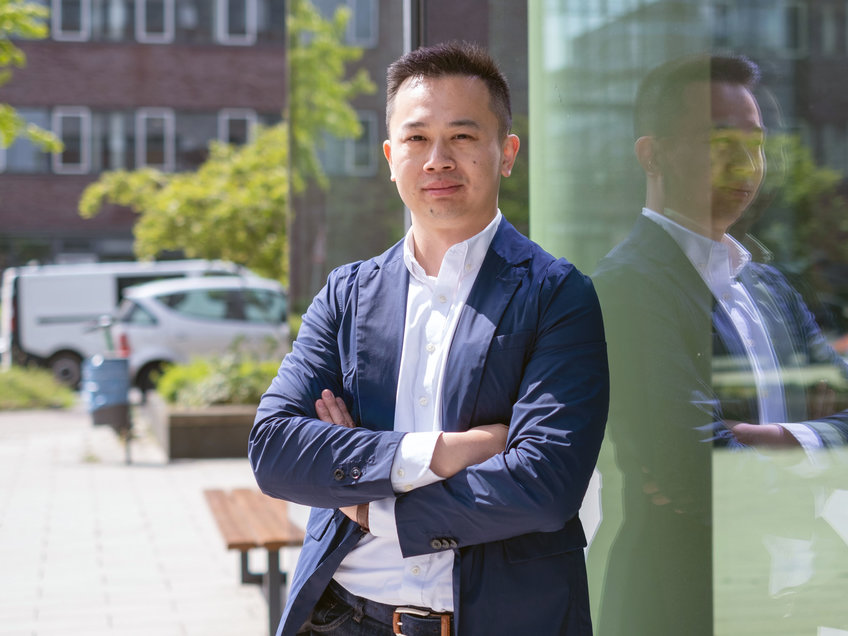
Boehringer Ingelheim Foundation supports research of Peng Wu
Peng Wu receives ~1 million euros from the Boehringer Ingelheim Foundation for the development of novel RNA-targeting drugs
The Boehringer Ingelheim Foundation is funding the research of Peng Wu, group leader at the Chemical Genomics Centre of the Max Planck Society, with the ‘Plus3’ perspectives programme. He will receive approximately 1 million euros to pursue new research ideas in his project “Rewriting RNA post-transcriptional modifications via small-molecule modulators” with the aim to develop new strategies in the field of post-transcriptional regulations and RNA therapeutics.
Peng Wu has been an independent group leader at the CGC since 2018 and a substitute professor in chemical biology at TU Dortmund University since Apr. 2024. His research focuses on the development of novel small-molecule-based chemical modulators to manipulate protein-RNA interactions.
With the new project, Peng Wu's group aims to develop active substances that can modulate the fate of RNA. RNA is not only a passive messenger substance that is produced by DNA transcription to transfer genetic information to the protein factories, the ribosomes. RNA can also regulate the activity of genes at many levels and thus control important cellular processes. For this purpose, the RNA is chemically modified, which affects its stability, structure and interactions and thus its fate. Peng Wu's group plans to develop small molecules to influence the most common RNA modification, the methylation at the N6 position of the RNA nucleotide adenosine (m6A) in cancer metabolism. The expected results will lay the foundation for a new avenue of research in RNA biology and should lead to the development of broadly applicable strategies based on RNA modification in therapeutic research.
About the Boehringer Ingelheim Foundation and the ‘Plus3’ perspectives programme
The Boehringer Ingelheim Foundation is a legally independent, non-profit foundation committed to the promotion of the medical, biological, chemical, and pharmaceutical sciences. It was established in 1977 by Hubertus Liebrecht, a member of the shareholder family of the Boehringer Ingelheim company. With its Plus 3 funding programme, the Boehringer Ingelheim Foundation aims to support outstanding junior group leaders in Germany conducting basic research in biology, chemistry, and medicine.
It enables them to optimally use the productive phase of their first temporary position as research group leaders as a springboard to a professorship in an excellent research environment. Approximately 80 % of group leaders whose Plus 3 funding started between 2010 to 2018 have obtained a professorship, and more than 40 % of all group leaders funded through the Plus 3 programme came from abroad.